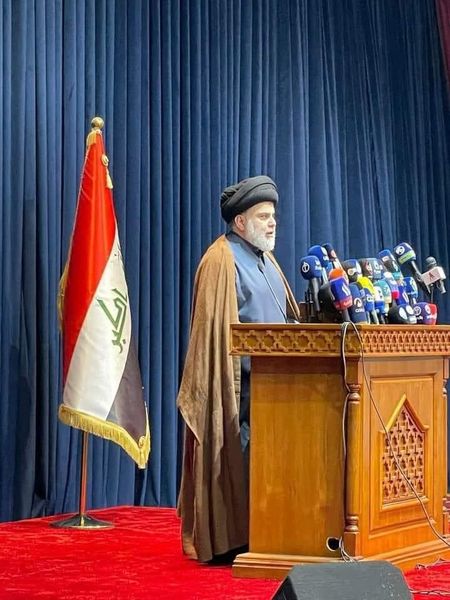
Written by – Elijah J. Magnier:
Iraq is preparing for the High Electoral Commission’s announcement of the final results of the Parliamentary elections following a manual recount in a large number of stations, based on the objections and appeals of parties and independent candidates in multiple constituencies. However, the announcement is not expected to produce any substantial change in the initial results previously announced. That means that the Sadrist movement, former PM Nuri al-Maliki, Speaker Muhammad al-Halbousi, and the Kurdish leader Masoud al-Barzani and the independents will hold the most significant seats in the Iraqi Parliament. At this point, what will be the Shia opposition factions and parties – which lost more seats than they represented in the past –next move? Will Sayed Moqtada form a national government as he previously announced?
The various Kurdish parties did not agree on a common agenda and how positions in the new cabinet will be distributed to negotiate with the significant Shia bloc that will choose the next Prime Minister and the other presidents (of the Republic and the House of Representatives). Moreover, the major Sunni blocs have not yet agreed on a unified understanding, nor did the Shiite blocs, who are still floundering behind the scenes of the results. The Shia groups demand either re-election – which is not possible – or are included in the new cabinet to accept the elections’ results and end the division in consequences.
Shia groups, i.e., “Asa’ib Ahl al-Haq” and “Hezbollah – Iraq”, are still demonstrating outside the Green Zone, the most secure area for governmental institutions, foreign embassies, and political party leaders. These Shia parties demand a recount or new parliamentary elections, which already cost $800 million. However, such a request is not rational because the main winner groups refuse to run again through an electoral process that is considered legal and regular. The lack of success of many groups was due to many factors:
The first point was the scattering of votes (presenting three candidates rather than just one for the same parliamentary seat) that affected the “Al-Fateh alliance” and other factions who failed to understand the new election law.
The second point is the desire of the Iraqi people to reject the return to power of the known and “infamous” politicians who ruled the country for the past decade. Iraqis are looking for a leadership change if possible, even though the Sadrist movement was present in all previous governments. It is also essential to consider the low turnout in the Parliamentary elections that reached, as officially announced, 41%. Suppose the percentage is correct and not lower than it was announced. In that case, it still indicates that the Iraqis did not rush towards the new parliamentary election because they knew that the same old political forces could return to the forefront again.The Shiite factions and alliances held a meeting under the “Coordination Framework” (al-Lijna al-Tansiqiya). They agreed to delegate two leading personalities (supreme court
Subscribe Monthly
Monthly Subscription or donate
€9.80
Subscribe to get access
Read more of this content when you subscribe today.
Proofread by” Maurice Brasher
Comments are closed.